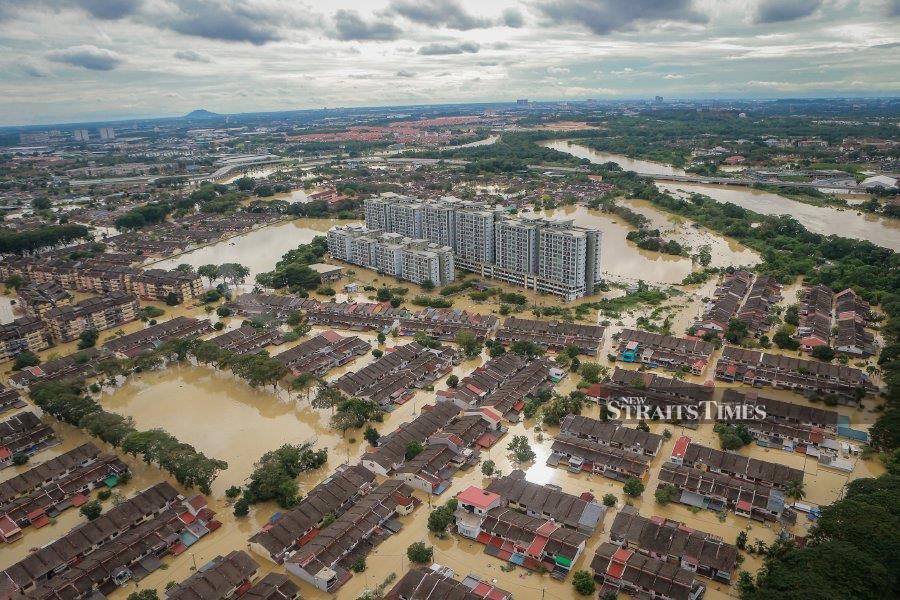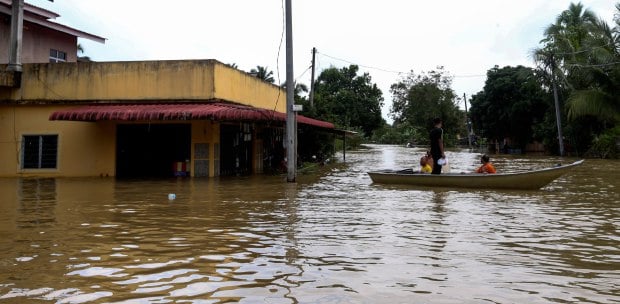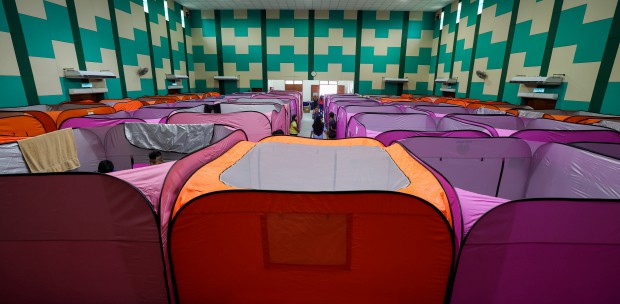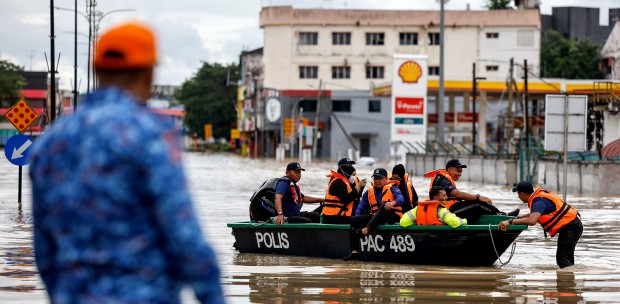MUCH mention of the 1971 floods was made during the latest floods. Those floods were as bad as the recent one.
But, as one researches the subject, one gets the impression that floods are quite usual, it's just the degree that differs. Floods are Malaysia's natural disaster.
One presumes the truth of this and history suggests that this is so. If so, why were we unprepared? Granted the recent problem was larger than usual but much suggests that everyone was caught unprepared.
Indeed, the east coast states were prepared for the northeast monsoon which hits yearly. But, that Selangor was badly hit was unexpected and therein lies the problem.
The Selangor experience of families stranded on rooftops overnight speaks of the inability of our rescue services to leap into action immediately. It is as if they function through habit and the inability of the top minders to act accordingly in an emergency.
If the military was not present at the outset it was, according to reports, the failure of National Disaster Management Agency (Nadma) to involve them.
In fact, they mounted rescues on their initiative. It beggars the imagination how a body created to deal with disasters can be so inept. And so was recorded a very wanting response to a natural disaster.
This makes little sense. When the 1971 floods hit the peninsula, at least 32 people died and 180,000 were said to be affected. That death toll has been surpassed with 81 deaths, with five missing.
Fifty years after the 1971 catastrophe, and despite all the measures put in place to prevent a repeat, the disastrous management of the floods this time suggests there was little to show for all the effort.
Much praise has been heaped on volunteers who came to the fore in place of the slow pace of the official rescue, as admitted by the prime minister.
Community groups distributed food and went on kayak rescue missions. Volunteers helped with post-flood rehabilitation of homes.
Thousands volunteered to help throughout the country. During which time, the official rescue efforts picked up speed. But, the slow take-off caused much grievance.
There were instances where families were stranded for up to three days before being rescued. Fifty years ago, life was different. No mobile telephones. No Internet. No technological wonders. Life was all about buses and walks, land lines for the fortunate and deliveries were an alien concept.
Life became difficult because of the floods. Half a century later, the floods were no less challenging despite all the technology that everyone said was changing the way we live dramatically. Could not the management of the floods be much better this time?
Where the floods were unexpected, made worse by the speed at which the areas were inundated by a metre or more of fast flowing waters fed by rain for some two days, it is to be expected that rescues took some time.
But, what about food shortage which caused looting of shops? Surely the planning must have taken these types of emergencies into account. Surely every district would have its emergency operations posts to handle natural disasters.
Weren't these places functioning? Say, for instance because disasters do not happen daily, these posts are non-operational until emergencies occur. Even then, there are ways of using whatever emergency services to tackle emergencies.
There were many complaints of how late rescuers were because of heavy rains and dangerous waters. Children and the old were exposed to them overnight when many families found themselves cut off.
And, as was explained, Hulu Langat, one of the worst affected localities in Selangor, suffered the disaster because drains were blocked due to ongoing highway construction.
Such causes of flooding must be eliminated. Companies responsible for such dangers must be made to pay for their dereliction of duty and causing such severe damage and maybe even loss of lives.
Such causes cannot be tolerated and must be severely punished to stop it from happening again. While the rains cannot be stopped, at least stop human-caused factors of flooding.
The author is a former NST leader writer






